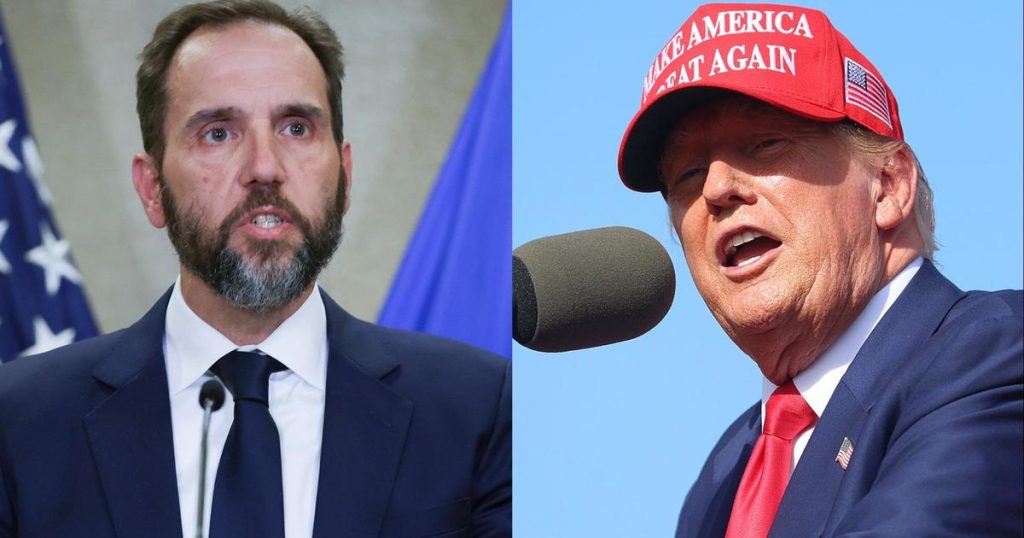The Justice Department and special counsel Jack Smith’s office are currently in discussions about how to wind down federal prosecutions against President-elect Donald Trump. The main issue at hand is the Justice Department’s policy against prosecuting a sitting president and the need to ensure a smooth transition to a second term in the White House for Trump. Regulations regarding the special counsel state that major decisions in an investigation overseen by a special counsel must be approved by the upper levels of the Justice Department, including possibly Attorney General Merrick Garland. Smith’s office has declined to comment on the ongoing talks.
Jack Smith was appointed by Attorney General Garland in November 2022 to take over the Justice Department’s investigations involving Trump. The president-elect has been indicted on federal charges in two separate cases brought by Smith, one involving the alleged mishandling of sensitive government records and the other stemming from purported efforts to subvert the transfer of power after the 2020 presidential election. Trump pleaded not guilty to all charges and accused Smith of politically motivated prosecution aimed at assisting President Biden and Vice President Kamala Harris in their campaigns against him.
In the case involving sensitive government records, Smith and his team claimed that Trump unlawfully held onto classified records after leaving the White House in January 2021 and worked with two staffers, Walt Nauta and Carlos De Oliveira, to impede the investigation. All three pleaded not guilty, but the charges were dismissed when Judge Aileen Cannon ruled Smith’s appointment was unconstitutional. Smith has appealed the ruling, and both sides have submitted filings to the U.S. Court of Appeals for the 11th Circuit. In the second case, prosecutors alleged that Trump engaged in an illegal scheme to retain power after losing the 2020 election. The case was paused as Trump sought to have the charges dismissed based on presidential immunity, but the Supreme Court ruled that former presidents cannot face charges stemming from official actions taken while in office.
After the Supreme Court ruling, the case against Trump resumed before U.S. District Judge Tanya Chutkan, and Smith secured a superseding indictment that narrowed the allegations to comply with the court’s decision. The two sides are currently debating whether the charges can still stand. As these prosecutions continue, the Justice Department and Smith’s office are actively discussing how to proceed and potentially wind down the cases against the president-elect. The outcome of these discussions could have significant implications for Trump’s legal future and the path to a second term in the White House. The development of these ongoing discussions will be closely monitored and could shape the future of federal prosecutions against President-elect Donald Trump.


